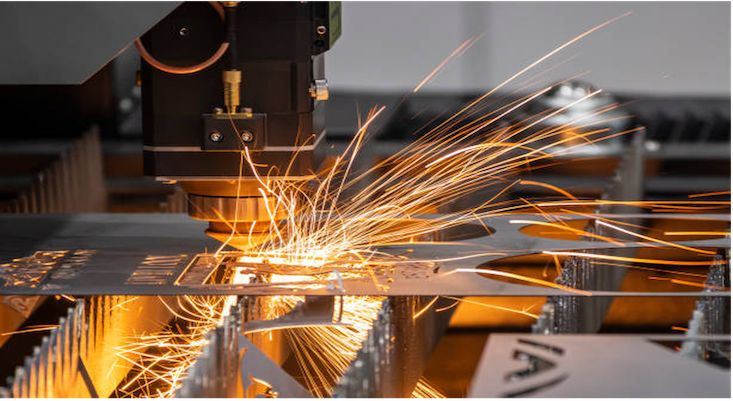MEP1001: Manufacturing for Product Innovation

IIT Delhi, one of the premier institutions in India, offers a remarkable course, Manufacturing for Product Innovation, aimed at first-year BTech students. This course is an essential part of the curriculum, introducing students to the key concepts, tools, and techniques used in modern manufacturing, with a specific focus on how they can be applied to drive product innovation. This hands-on, comprehensive course equips students with practical knowledge and the skills necessary to develop products using innovative manufacturing techniques.
Course Overview
The Manufacturing for Product Innovation course is designed to familiarize students with both traditional and advanced manufacturing processes. The curriculum focuses on integrating these processes with product design and development, ensuring that students understand how to design products that are both manufacturable and innovative. It offers a unique opportunity for students to learn about real-world applications of manufacturing techniques while contributing to the design and development of innovative products.
Thematic Areas Covered
The first Three weeks of the course will be dedicated to exploring different thematic areas that provide an in-depth understanding of various manufacturing techniques and Skilling through hands-on learning in the processes of choice:
- Machining
- Turning, Milling, Grinding, Shaping, and Gear Manufacturing
Students will learn essential machining processes used to shape and fabricate materials into products, including traditional methods and advanced techniques for precision and efficiency.
- Turning, Milling, Grinding, Shaping, and Gear Manufacturing
- Welding
- Gas Metal Arc Welding, Gas Welding, TIG, MIG, RSW, Laser Welding, and Robotic MIG Welding
This section will cover various welding techniques, from traditional methods like TIG and MIG to advanced robotic welding, equipping students with a wide range of skills for joining materials.
- Gas Metal Arc Welding, Gas Welding, TIG, MIG, RSW, Laser Welding, and Robotic MIG Welding
- Casting and Forging
- Sand Casting, Die Casting, Investment Casting, Centrifugal Casting, and Forging
Students will explore casting and forging processes, focusing on techniques to create high-quality, durable products through material molding and shaping.
- Sand Casting, Die Casting, Investment Casting, Centrifugal Casting, and Forging
- Precision Manufacturing
- Wire-cut EDM, Die Sinking EDM, Abrasive Water Jet, Laser Cutting, Micromachining, and Super Finishing
Precision manufacturing methods allow for the creation of intricate parts with extremely tight tolerances, which will be covered through hands-on learning experiences.
- Wire-cut EDM, Die Sinking EDM, Abrasive Water Jet, Laser Cutting, Micromachining, and Super Finishing
- Digital Manufacturing
- 3D Printing, CNC Turning & Milling, Collaborative Manufacturing through Cobots, Schematic Design, PCB Manufacturing & Electronics Assembly, AR/VR & IoT
This area focuses on modern digital manufacturing techniques that incorporate cutting-edge technologies like 3D printing, IoT integration, and collaborative robots (cobots) to revolutionize the manufacturing industry.
- 3D Printing, CNC Turning & Milling, Collaborative Manufacturing through Cobots, Schematic Design, PCB Manufacturing & Electronics Assembly, AR/VR & IoT
- Sheet Metal, Fabrication, Woodworking & Composite Manufacturing
- Sheet Metal Bending, Shearing, Forming, Swaging, and Seam Making; Cutting, Sawing, Filling, and Fabrication using Power Tools; Woodworking; Composite Manufacturing
This section introduces students to various techniques used in shaping and forming sheet metal, working with wood, and creating composite materials, offering a diverse set of skills for manufacturing.
- Sheet Metal Bending, Shearing, Forming, Swaging, and Seam Making; Cutting, Sawing, Filling, and Fabrication using Power Tools; Woodworking; Composite Manufacturing
Project Work
After familiarizing themselves with these core thematic areas, students will apply their knowledge in the final eight weeks through a project work that spans across one or more thematic areas. Students will be tasked with product ideation, design, process planning, and the execution of a functional product. They will prepare detailed process sheets, create schedules, and execute the manufacturing steps required to build their chosen product.
The project will be evaluated based on:
- Project Management: Students will be assessed on their ability to plan and manage the manufacturing process efficiently.
- Quality: The final product's quality will be evaluated based on the precision, functionality, and finish.
- Sustainability: Students will also be encouraged to consider the environmental impact of the manufacturing processes they use, emphasizing the importance of sustainability in product development.
Key Learning Outcomes
By the end of the course, students will:
- Gain hands-on experience with various manufacturing processes and advanced technologies.
- Develop the ability to design and prototype innovative products using modern manufacturing methods.
- Understand the interaction between manufacturing techniques and product design.
- Learn to manage a manufacturing project, from conceptualization to execution.
- Appreciate the importance of quality control, sustainability, and efficiency in manufacturing.